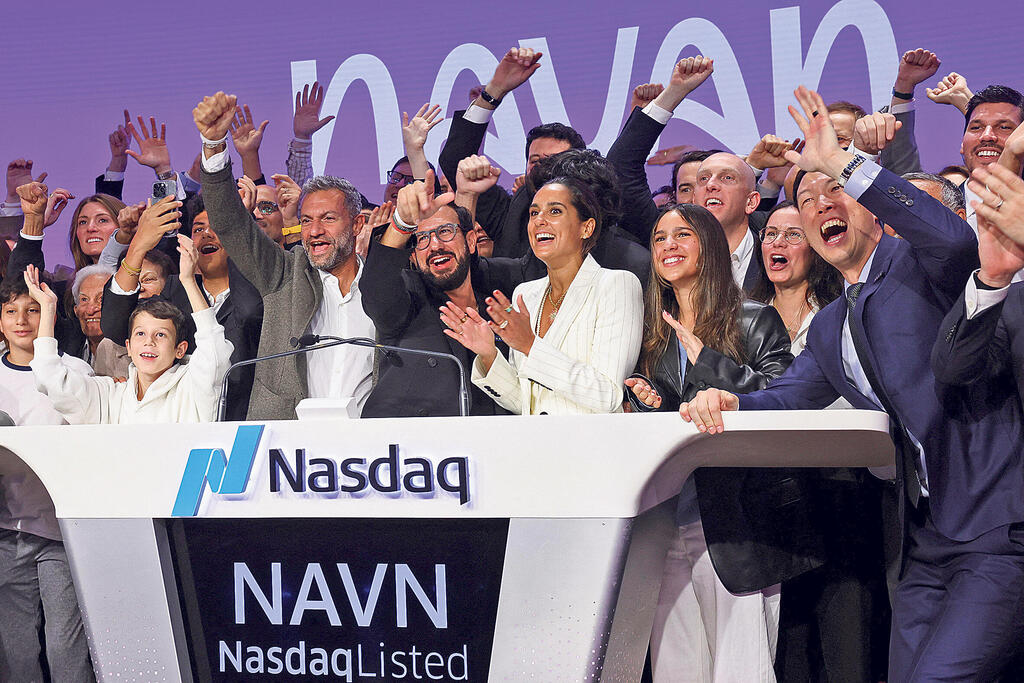Last week was one of the strongest Wall Street has seen in years, particularly for technology stocks, but unusually, the only company to complete an IPO during that period was the Israeli firm Navan.
Navan succeeded in raising $923 million at a valuation just above $6 billion, but its market debut fell short of expectations for a company of its size, especially with heavyweight underwriters such as Goldman Sachs leading the deal, alongside Citi, Morgan Stanley, and Jefferies.
Even during the roadshow, there were signs of limited enthusiasm. The price range for the offering, set between $23 and $26, was not raised, and the IPO was priced exactly at the midpoint, an indication that demand was steady but not overwhelming. The stock then dropped 20% on its first trading day, prompting questions about whether this was the right time for Navan to go public.
By Friday, Navan’s shares had tried to recover slightly but still closed at $20, reflecting a market capitalization of about $5 billion, a steep drop from its last private round in late 2022, when the company was valued at $9.2 billion. Navan had once hoped to list at $12 billion.
The stock’s disappointing performance is especially notable given its positioning in the hot fintech sector. Navan offers an integrated platform for corporate travel management, complete with a branded credit card, similar to several recent successful listings in the same field. In comparison, Israeli peer eToro surged nearly 30% following its IPO, while Klarna, Chime, and Circle all recorded strong gains.
So what’s weighing on Navan’s stock, making it the third Israeli company to list on Wall Street this year, right from the start?
Part of the answer lies in timing and technical hurdles. Despite favorable market sentiment, most IPOs were delayed due to the ongoing U.S. government shutdown, which froze operations at the Securities and Exchange Commission (SEC) and temporarily halted new approvals. Navan was the only company to take advantage of a special exemption allowing listings during a shutdown. Under this rule, a company can submit its full prospectus with a price range 20 days before trading begins, without waiting for final SEC sign-off.
Once the shutdown ends, SEC staff will review Navan’s documents and could still request retroactive amendments, a procedural risk that may have deterred some investors.
Navan’s decision to proceed suggests confidence in its disclosures, and market pressure on the stock may ease once the shutdown concludes. But investors may also be uneasy about the motives behind the IPO, which appear to focus more on debt repayment than on funding new growth.
The company’s balance sheet shows $223 million in cash but $657 million in debt, resulting in significant interest expenses. To date, Navan has raised $2.2 billion through a mix of equity and debt. Its largest borrowing, $400 million, was led by Goldman Sachs, which also brought the firm to the Nasdaq to help it refinance. Navan also has $195 million in convertible bonds and an additional $100 million SAFE raised earlier this year, both expected to convert into equity following the IPO.
Those heavy financing costs have contributed to persistent losses. Navan ended the first half of 2025 with a 30% revenue increase to $329 million and a reduction in operating losses from $53 million to $28 million, but still posted a net loss of $100 million, largely due to debt costs. In fiscal 2024, revenue rose 33% to $537 million, while losses narrowed from $332 million to $181 million.
Much of the debt traces back to the pandemic years, when Navan, then known as TripActions, was forced to make deep cuts as global travel came to a halt. Founders Ariel Cohen and Ilan Twig used the crisis to pivot the company toward new areas, including payments, entertainment bookings, and expense management.
Today, Navan’s platform covers nearly every aspect of corporate travel: booking flights and hotels, managing restaurant and event reservations, processing payments, and handling expense reimbursements. This “business-meets-leisure” or “bleisure” market represents a $185 billion opportunity, but competition is fierce, from Booking.com and American Express to fintech rivals Ramp and Brex.
According to the company, its system helps clients reduce travel-related spending by about 15%, with half of all service requests now handled by AI rather than human agents. Navan’s client list includes Unilever, Adobe, and Christie’s, and it serves more than 10,000 active corporate customers. Over the past 12 months, the company processed $3.8 billion in payments, an 18% increase, and handled $7.6 billion in flight and hotel bookings, up 34% year-over-year.
Source link

